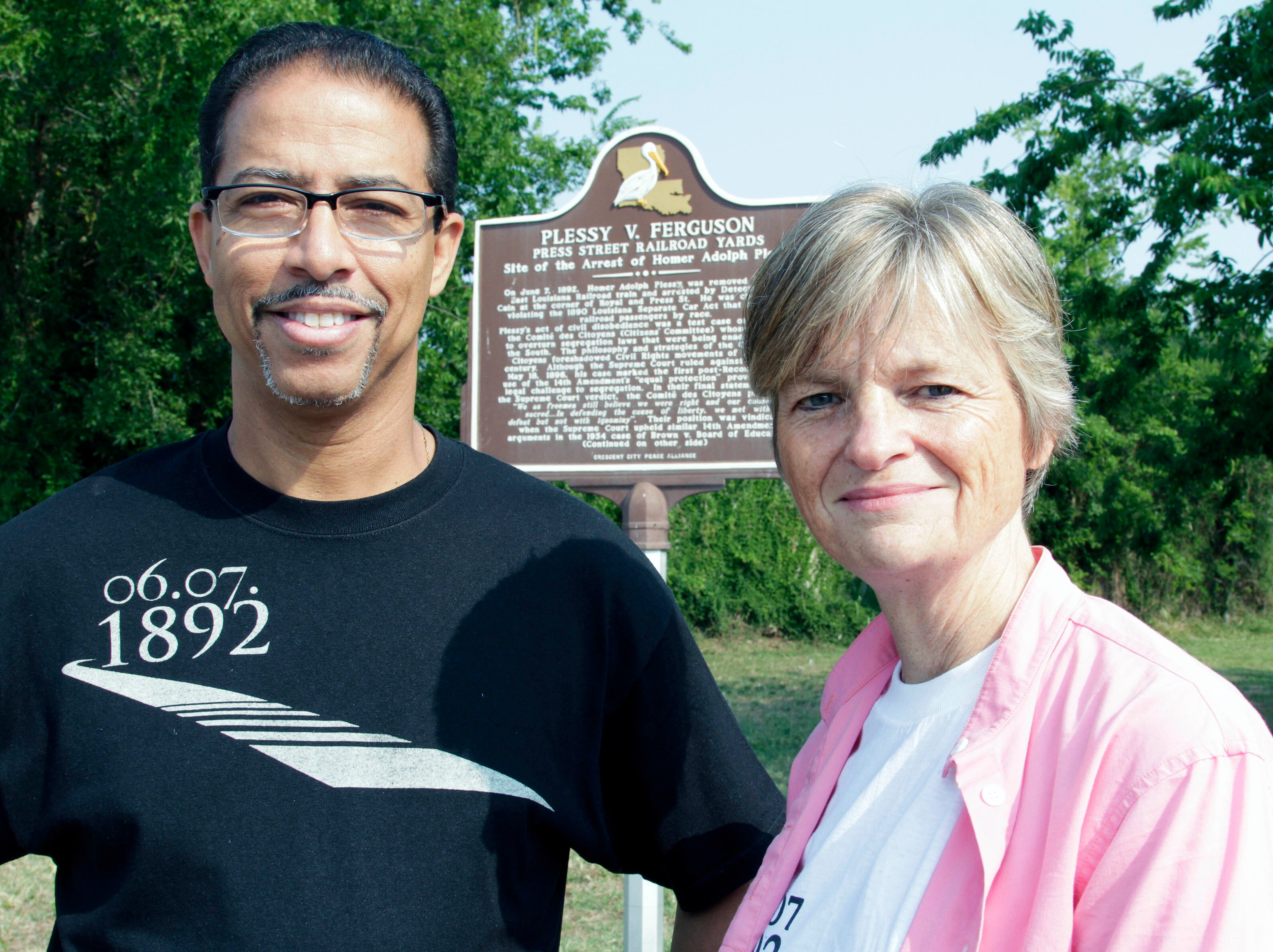Who is Homer Plessy, namesake of Supreme Court ruling whose family seeks a pardon?
‘When Homer Plessy died in 1925 everyone remembered his name as somewhat the poster child of segregation’

The man whose conviction for violating segregation in Louisiana became the foundation for the US’s ‘Separate but Equal’ segregation policy has been pardoned by the state Board of Pardons almost 100 years after his death.
Now, his family’s fight to get Homer Plessy pardoned will make its way to Governor John Bel Edwards, who will take the final decision over the pardon.
Plessy was arrested for being in a train car that was reserved for white people only, and refusing to move. Plessy’s decision to buy a first class ticket to Covington and sit in a carriage reserved for white people came as part of a civil rights’ group’s attempt to challenge the racist state law.
His act of bravery, challenging the state’s Separate Car Act, took him all the way to the Supreme Court – where the court’s 1896 decision against him effectively legalised segregation in the US.
But 125 years after that decision, descendents of Plessy and John Howard Ferguson, the Louisiana judge who initially ruled against him, are campaigning to have him pardoned.
“When Homer Plessy died in 1925 everyone remembered his name as somewhat the poster child of segregation,” one of Homer Plessy’s distant relatives, Keith Plessy, told The Guardian. “And this stigma can be removed from his memory by honoring him in the right way. By recognising that the law itself was a crime.”
In its ruling, in the case of Plessy v Ferguson, the Supreme Court stated that segregation laws did not violate the US Constitution, provided that the facilities provided for both races were equal in quality – officially beginning the era of ‘Separate but Equal’ segregation in the States.
Following the Supreme Court’s ruling, Plessy pleaded guilty to violating the Separate Car Act. He was fined $25 and died with the conviction on his record in 1925, the Associated Press reported.
A great-great granddaughter of Judge Ferguson also added her signature to the application to posthumously pardon Plessy.
“If the pardon is granted and the governor of Louisiana signs it, it will show a willingness of our state government to recognize the devastating effect the enactment of the separate car law had on Black citizens in Louisiana,” said Phoebe Ferguson.
“It will show that even 125 years later an apology for enacting those laws can have great effect and for other laws to be overturned or examined and for others to receive a pardon.”
Join our commenting forum
Join thought-provoking conversations, follow other Independent readers and see their replies
Comments
Bookmark popover
Removed from bookmarks